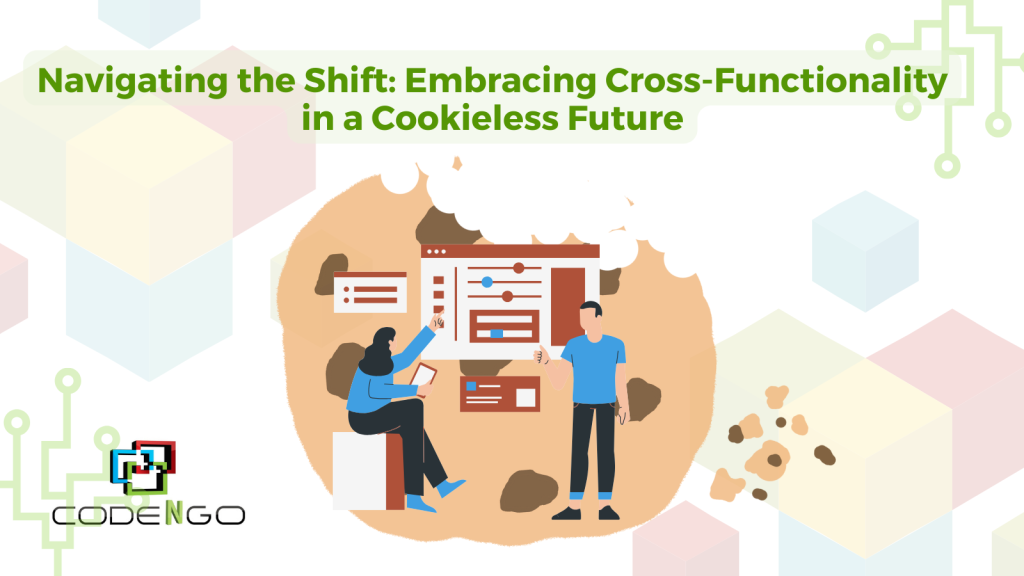Cross-Functionality emerges as a critical strategy in navigating the impending cookieless future. As the digital landscape evolves, businesses and marketers stand on the brink of significant transformation. Driven by increasing privacy regulations and a shift in consumer expectations towards data privacy, this future poses a unique set of challenges and opportunities. The necessity for a reevaluation of how organizations approach data collection, analysis, and utilization becomes evident. Embracing cross-functionality becomes imperative in ensuring businesses can continue to deliver personalized experiences, measure performance accurately, and maintain compliance with privacy standards throughout this transition.

The Transition to a Cookieless World:
The announcement by major browsers to phase out third-party cookies has sent ripples across the digital ecosystem. Third-party cookies have long been the cornerstone of digital advertising and analytics, enabling businesses to track user behavior across sites, deliver targeted ads, and measure campaign effectiveness. However, this reliance is set to change, prompting a reimagining of data strategies.
The Role of Cross-Functionality:
Cross-functionality refers to the collaboration and integration of different departments and skill sets within an organization to achieve common goals. In the context of a cookieless future, cross-functionality becomes crucial for several reasons:
-
Unified Data Strategy: With the decline of third-party cookies, organizations must rely more on first-party data collected directly from their interactions with customers. This shift necessitates a unified data strategy that aligns marketing, sales, IT, and data analytics teams. Collaboratively, these teams can develop a holistic approach to collecting, storing, and leveraging data in a way that respects user privacy and complies with regulations.
-
Technology and Tools: The transition away from cookies requires the adoption of new technologies and tools for data collection and analysis. Cross-functional teams can collectively evaluate and implement solutions such as Customer Data Platforms (CDPs) or Data Management Platforms (DMPs) that prioritize privacy and security, ensuring the organization’s tech stack is future-proof.
-
Customer Experience and Personalization: Delivering personalized experiences without infringing on privacy becomes more challenging in a cookieless world. Cross-functionality enables organizations to leverage diverse perspectives in crafting innovative personalization strategies that do not rely on invasive tracking. For instance, leveraging machine learning models to predict customer preferences based on first-party data can be a collaborative effort between data scientists, marketers, and product teams.
-
Compliance and Ethics: As privacy regulations evolve, maintaining compliance requires a concerted effort from legal, data protection, and operational teams. Cross-functional collaboration ensures that all aspects of data collection and processing are designed with privacy in mind, adhering to both the letter and spirit of the law.
Strategies for Success:
-
Invest in Education and Training: Equip teams with the knowledge and skills needed to understand the implications of a cookieless future and the importance of cross-functionality in addressing it.
-
Foster a Culture of Collaboration: Break down silos between departments to encourage the free flow of ideas and solutions. Regular cross-departmental meetings and joint projects can facilitate this.
-
Embrace Agile Methodologies: Adopt agile practices to enhance flexibility and responsiveness as teams navigate the challenges of adjusting to new data strategies and technologies.
-
Prioritize Privacy by Design: Integrate privacy considerations into every stage of product development and data strategy, ensuring compliance and fostering trust with customers.
The journey towards a cookieless future is fraught with challenges, but it also offers organizations an opportunity to innovate and differentiate themselves. By embracing cross-functionality, businesses can ensure they are not just prepared to navigate this new landscape but are poised to thrive in it. The key lies in viewing this shift not as a loss of data capabilities but as a chance to rebuild trust with consumers, innovate in data collection and analysis, and create more meaningful, privacy-conscious customer experiences. The future is cookieless, but it is also full of potential for those ready to adapt.
Share this article on